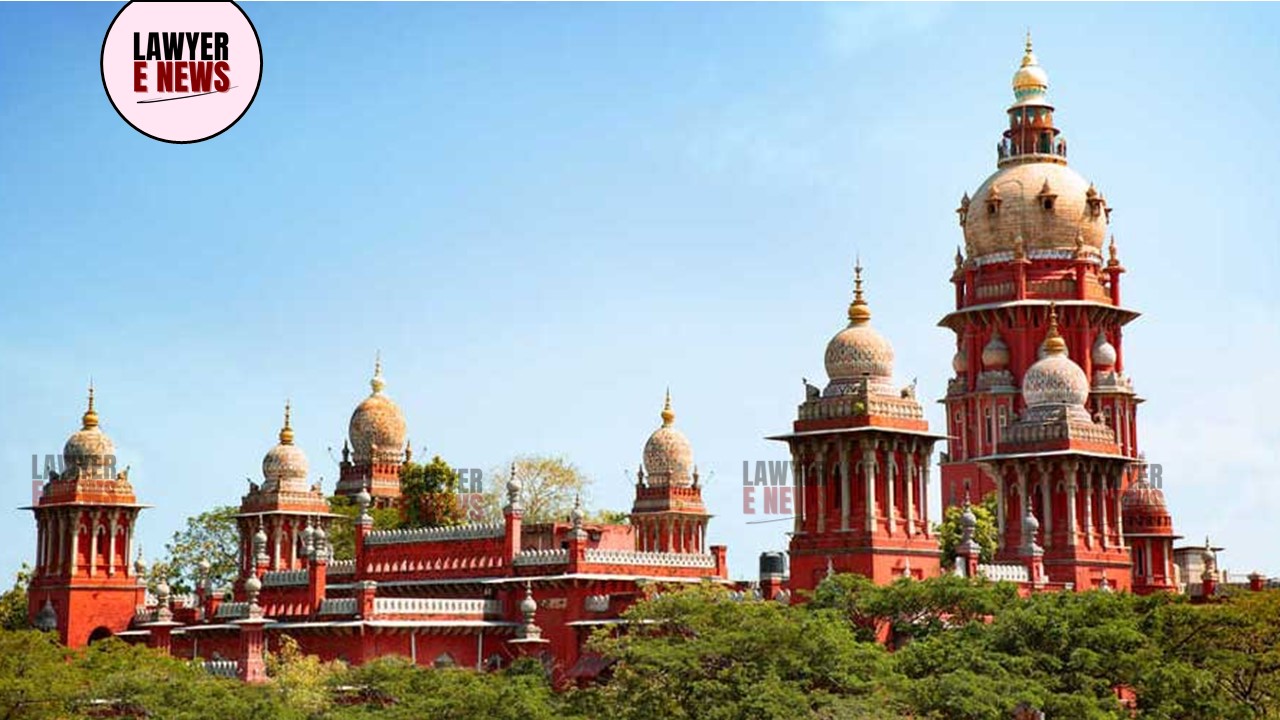-
by Admin
17 February 2026 2:34 PM



“When the one-year LLM programme is recognised by UGC and accepted for Ph.D., I find no reason to reject it for the purpose of appointment” — In a significant ruling Madras High Court quashed the Teachers Recruitment Board’s selection list for the post of Assistant Professor (Human Rights) and directed the appointment of Dr. Sangeetha Sriraam, who had been unjustly excluded despite securing the top rank in the written examination. The Court observed that her one-year LLM degree, conferred by a reputed institution and recognised by the University Grants Commission (UGC), could not be disqualified simply because it did not follow a two-year format.
Justice R.N. Manjula held that the TRB acted arbitrarily and without basis in invalidating a qualification that is accepted for doctoral admissions and prescribed no such restriction in its own notification.
Dr. Sangeetha Sriraam applied for the position of Assistant Professor under the GT/GT(W) category as advertised in TRB Notification No. 2 of 2018. She topped the written examination with a score of 133 out of 175, and was shortlisted for the interview. However, when the provisional selection list was published on 14.05.2019, her name was omitted.
She filed a writ petition before the Madras High Court, challenging her exclusion and seeking appointment against the reserved post in the Human Rights department. During the proceedings, it emerged that her exclusion was based solely on her possessing a one-year LLM degree, which, according to the TRB, did not meet the eligibility requirement — though the notification itself made no mention of duration.
Legal Analysis and Court’s Findings: Justice R.N. Manjula firmly rejected the reasoning offered by the TRB and the State. She observed, “In the notification nowhere it is stated that the LLM Programme should be two years only.”
The Court noted that the petitioner completed her LLM from the prestigious National Law School of India University, Bangalore, and that her degree was in full compliance with UGC norms. Referring to binding precedents, the Court quoted the decision in Suganya Jeba Sarojini v. Tamil Nadu Dr. Ambedkar Law University, where the Division Bench had clarified that a two-year LLM was only prescribed in the context of certain university Ph.D. regulations.
Addressing the issue of equivalency, the Court observed: “When the one-year LLM programme is recognised by UGC and that is accepted for the purpose of admission to Ph.D., I find no reason to reject it for the purpose of appointment.”
Further citing K. Parandhaman v. TNPSC, Justice Manjula reiterated that: “The numerals are intended to clarify the pattern of study… and shall not be read as one-year LLM or two-year LLM.”
She cautioned that employers cannot create arbitrary distinctions between equivalent courses without clear legal backing: “The qualification contemplated by the employer shall not make any arbitrary discrimination between equivalent and similar courses without any valid basis.”
“Merit Cannot Be Denied on Technicalities Not Stated in the Rules”
The Court further held that Dr. Sangeetha’s exclusion was not only arbitrary but legally untenable, since she had clearly topped the written examination and there was no clause in the TRB notification barring one-year LLMs.
“As the petitioner has proved her eligibility by having secured first rank in the written examination, the respondents ought to have considered her candidature.”
The Court emphasized that the employer’s conduct ran contrary to established legal principles, especially in light of the fact that the one-year LLM includes research and rigorous academic components akin to the two-year course.
“It is needless to state that the University in which the petitioner had done her one-year LLM course is one of the most reputed Law Schools in the country.”
Justice Manjula directed the TRB to include the petitioner in the selection list, and the State to release her appointment order with retrospective seniority from the date when less meritorious candidates were appointed.
“The second respondent is directed to release the appointment order to the petitioner by giving retrospective effect to her seniority... with monetary effect from the date on which she is appointed.”
The Madras High Court’s ruling sets a powerful precedent affirming that qualifications approved by regulatory authorities like the UGC cannot be invalidated on the whims of a recruiting authority. The decision reaffirms the principle that merit and fairness must guide public appointments, and that legal equivalence of academic degrees must be respected.
“No invalidation can be attached to one-year LLM degree for the purpose of getting appointment in the public departments or Universities.”
Date of Decision: 26 March 2025
